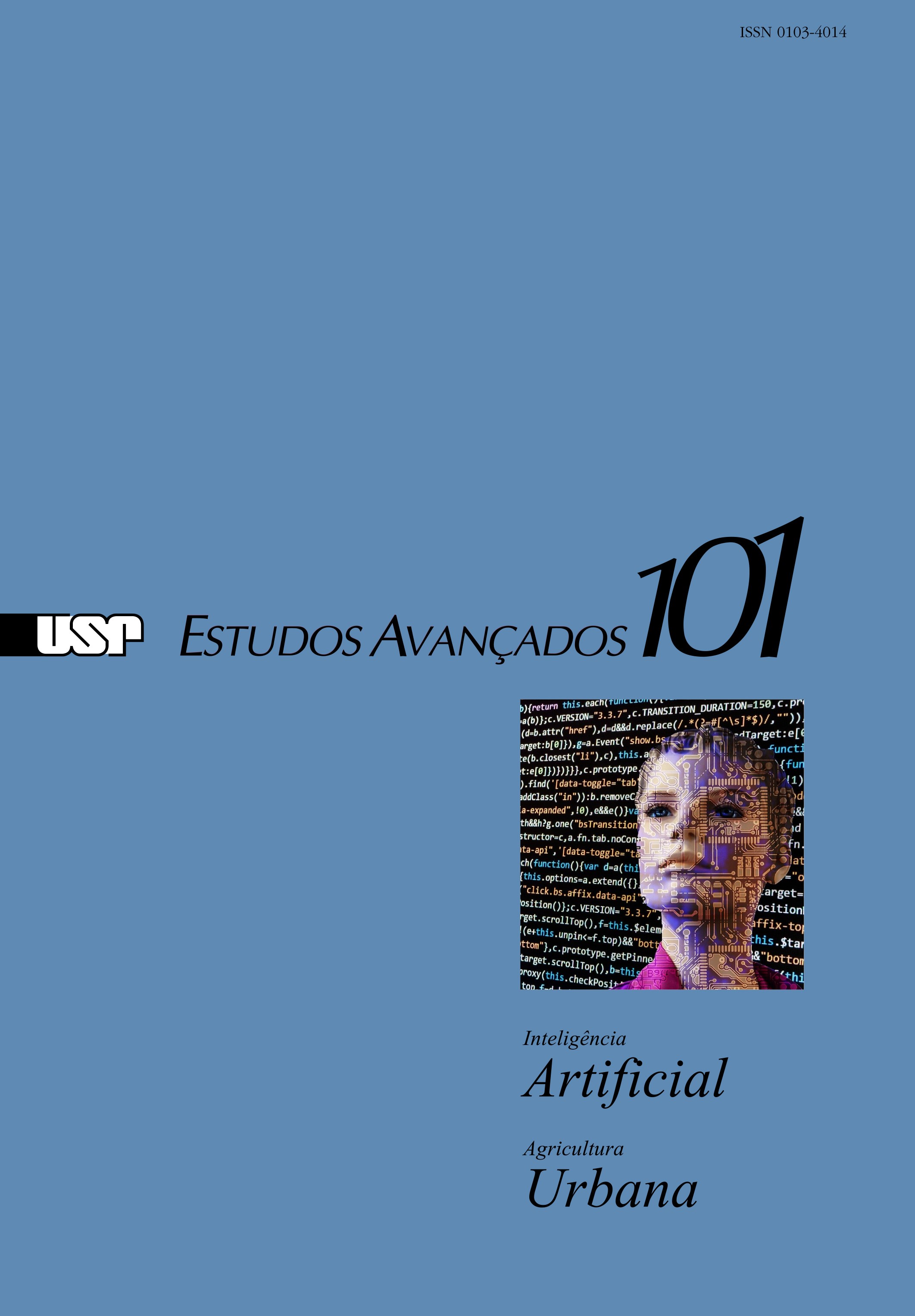Inteligência Artificial e Aprendizado de Máquina: estado atual e tendências
DOI:
https://doi.org/10.1590/s0103-4014.2021.35101.007Keywords:
Artificial Intelligence, Machine Learning, Ethics in Artificial IntelligenceAbstract
The field of Artificial Intelligence has advanced extraordinarily in recent years, and nowadays it is used to solve numerous technological and economic problems. Because much of the current success of Artificial Intelligence derives from Machine Learning techniques, particularly Neural Networks, this article will discuss these areas of research as well as the current state, challenges and research opportunities of AI. We will also mention concerns about social impacts and ethical issues.
Downloads
References
CORTES, C.; VAPNIK, V. Support-vector networks. Machine Learning, v.20, p.273-
,1995. Disponível em: <https://doi.org/10.1007/BF00994018>.
DEVLIN, J. et al. BERT: Pre-training of Deep Bidirectional Transformers for Language Understanding. arXiv:1810.04805, 2019. Disponível em: <https://arxiv.org/
abs/1810.04805>. Acesso em: 7. fev. 2021.
FENG, S. et al. Intelligent driving intelligence test for autonomous vehicles with naturalistic and adversarial environment. Nat Commun, v.12, p.748, 2021. Disponível em:
<https://doi.org/10.1038/s41467-021-21007-8>
GAMA, J. A survey on learning from data streams: current and future trends. Progress
in Artificial Intelligence, v.1, n.1, p.45-55, 2012.
HAGENDORFF, T. The Ethics of AI Ethics: An Evaluation of Guidelines. Minds &
Machines, v.30, p.99-120, 2020. Disponível em: <https://doi.org/10.1007/s11023-
-09517-8>.
HOSPEDALES, T. et al. A. Meta-Learning in Neural Networks: A Survey. arXiv:2004.05439, 11 Abr. 2020. Disponível em: <https://arxiv.org/abs/2004.05439>.
Acesso em: 7 fev. 2021.
LECUN, Y. et al. Deep learning. Nature v.521, p.436-44, 2015.
MCCULLOCH, W.S.; PITTS, W. A logical calculus of the ideas immanent in nervous
activity. Bulletin of Mathematical Biophysics, v.5, p.115-33, 1943. Disponível em: <https://doi.org/10.1007/BF02478259>
MITCHELL, T. Machine Learning. S. l.: McGraw Hill, 1997.
OTTER, D. W. et al. A survey of the usages of deep learning for natural language processing. IEEE Transactions on Neural Networks and Learning Systems, v.32, n.2, p.604-24, 2020. Disponível em: <https://doi.org/ DOI: 10.1109/tnnls.2020.2979670>.
RAVANELLI, M. et al. Multi-task self-supervised learning for robust speech recognition. In: ICASSP 2020-2020 IEEE International Conference on Acoustics, Speech and
Signal Processing (ICASSP). Barcelona, 2020. p.6989-93.
ROSENBLATT, F. The Perceptron – A perceiving and recognizing automaton. Report
-460-1. Cornell Aeronautical Laboratory, November 1957.
RUMELHART, D. E. et al. Learning representations by back-propagating errors. Nature, v.323, p.533-6, 1986.
SARACCO, R. Congrats Xiaoyi. You are now a medical doctor. IEEE Future Directions. 2017. Disponível em: <https://cmte.ieee.org/futuredirections/2017/12/02/
congrats-xiaoyi-you-are-now-a-medical-doctor/>. Acesso em: 7 fev. 2021.
TORFI, A. et al. Natural language processing advancements by deep learning: A survey.
arXiv preprint arXiv:2003.01200 (2020). Acesso em: 16 fev. 2021.
TURING, A. M. Computing Machinery and Intelligence. Mind, LIX, v.236, p.433-
, doi:10.1093/mind/LIX.236.433, ISSN 0026-4423, October 1950.
Downloads
Published
Issue
Section
License
Copyright (c) 2021 Teresa Bernarda Ludermir

This work is licensed under a Creative Commons Attribution-NonCommercial 4.0 International License.
Estudos Avançados não celebra contrato de cessão de direitos autorais com seus colaboradores, razão pela qual não detém os direitos autorais dos artigos publicados. Os interessados em reproduzir artigos publicados na revista devem necessariamente obter o consentimento do autor e atribuir devidamente os créditos ao periódico.


